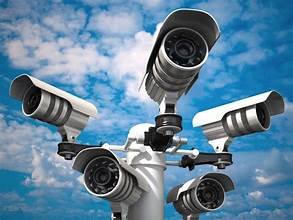In the UK, the use of CCTV cameras has become a common practice for enhancing security. Whether it’s for a business, a private home, or public spaces, CCTV Installation and Monitoring Services play a significant role in ensuring safety. However, while CCTV cameras are beneficial, their use comes with several legal responsibilities that individuals and businesses must be aware of. Understanding the legal implications of CCTV is essential to avoid legal issues and ensure the footage is used appropriately. In this article, we’ll explore the key legal considerations when using CCTV in the UK and how security services can help.
Legal Framework for CCTV in the UK
The primary legal framework governing the use of CCTV in the UK is the Data Protection Act 2018, which is aligned with the General Data Protection Regulation (GDPR). These regulations set out how personal data should be handled, including video footage recorded by CCTV cameras. CCTV footage can be classified as personal data when it identifies individuals, such as faces or license plates. Therefore, businesses and homeowners must comply with these laws to avoid penalties.
Data Protection and Privacy Concerns
The most significant concern when using CCTV in the UK is ensuring that personal data is handled correctly. According to the GDPR, individuals’ privacy must be respected, and their data must be processed transparently and lawfully. CCTV operators must inform people that they are being recorded, and this can typically be done by displaying clear signs or notices stating that CCTV is in operation. The information provided must include the purpose of the CCTV, who is responsible for the system, and how long the footage will be kept.
In addition to this, businesses and individuals must ensure that they do not record footage beyond the necessary area. For example, cameras placed in public spaces or offices should not record private areas, such as bathrooms or changing rooms. The use of CCTV should always be proportionate to the security risks.
Data Retention and Access Control
One of the key legal implications of using CCTV in the UK is data retention. CCTV footage should not be kept indefinitely and must only be stored for as long as necessary. The length of time for retaining footage depends on the purpose for which it was recorded. For example, footage used for security purposes should typically be kept for no longer than 30 days. After this period, the footage should be deleted unless there is a specific reason to retain it, such as in the event of an investigation or legal matter.
Access to CCTV footage should also be restricted to authorised personnel only. Businesses that provide CCTV Installation and Monitoring Services ensure that only designated individuals can view the footage, maintaining privacy and security. It is important to keep track of who accesses the footage and for what purpose.
Impact on Employees and Visitors
If CCTV is installed in the workplace, employees must be informed about its use. In many cases, the employer is required to conduct a privacy impact assessment to assess the potential impact of CCTV on employees’ privacy. It is important that CCTV monitoring is not used to monitor employees’ performance or behaviour unnecessarily, as this could violate their rights under employment law. Instead, CCTV should only be used for security and safety purposes.
For visitors or customers, businesses must ensure that they are informed that CCTV is in operation. Clear signage should be visible at entry points or other relevant areas to notify people that they are being recorded. Failure to notify visitors could lead to complaints or legal action for breaching privacy rights.
Balancing Security and Privacy
The use of CCTV is a balancing act between ensuring security and protecting privacy. It’s essential that businesses, homeowners, and public authorities assess the risks to determine the need for CCTV. CCTV Installation and Monitoring Services can help clients choose the right cameras, ensuring they are placed in strategic areas where they can effectively enhance security without infringing on people’s privacy. Security services can also guide clients on the best practices for legal compliance and help with the ongoing monitoring of footage.
The Role of CCTV in Crime Prevention
CCTV cameras can act as a deterrent to potential criminals, and this is one of the main reasons businesses and individuals invest in CCTV systems. However, it’s important to note that while CCTV can help prevent crime, it is not foolproof. In addition to the legal responsibilities associated with CCTV, businesses should also take other security measures such as alarm systems, security personnel, and regular security audits. These measures, when combined, form a robust security strategy.
Conclusion
In conclusion, understanding the legal implications of using CCTV in the UK is crucial for businesses and homeowners who want to protect their property and maintain privacy. Compliance with the Data Protection Act 2018 and GDPR regulations ensures that CCTV systems are used legally and effectively. CCTV Installation and Monitoring Services can guide clients through the process of installing and maintaining their systems while ensuring they meet legal requirements. By following the rules and using CCTV responsibly, individuals and businesses can enhance their security while protecting privacy and avoiding legal trouble.




